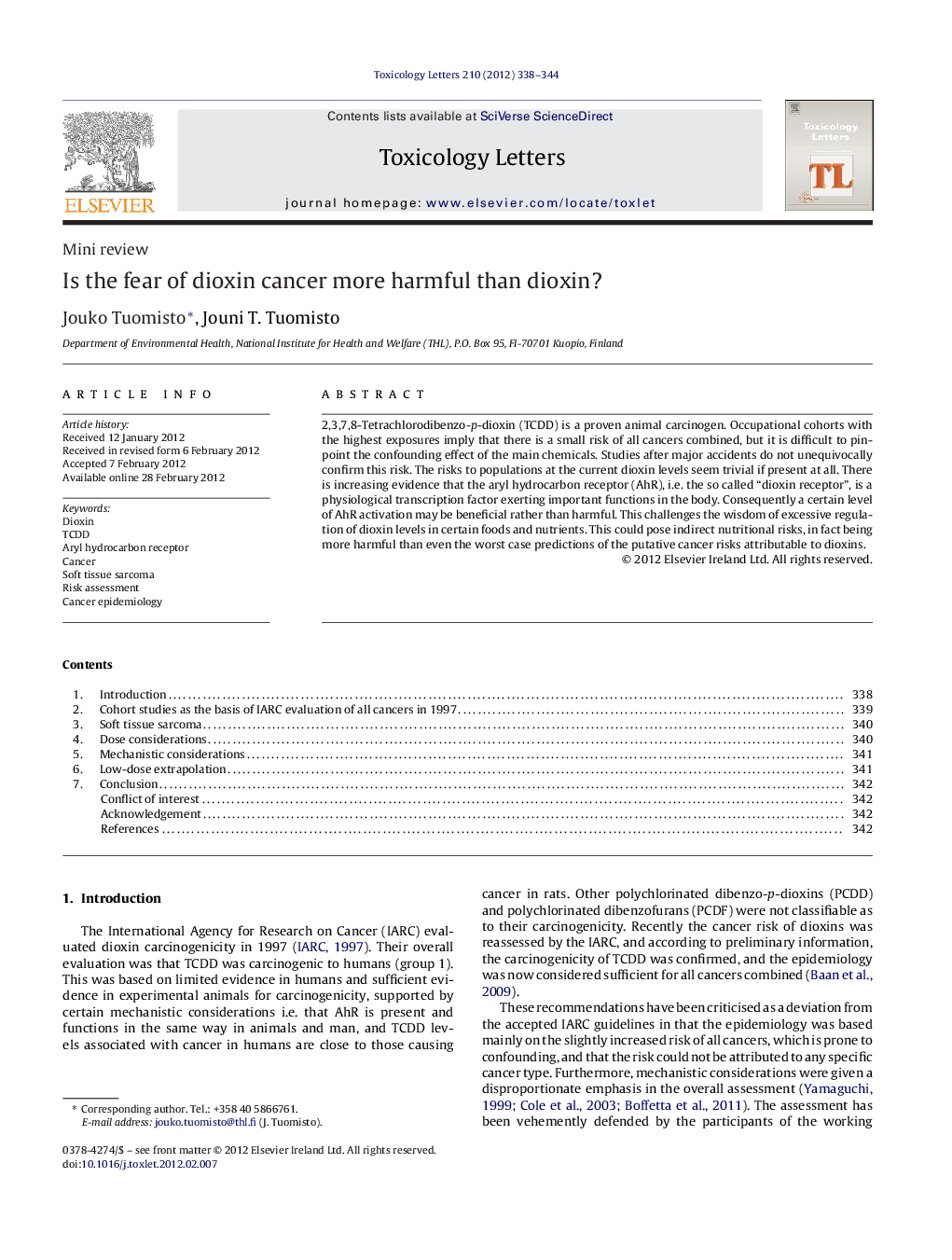| کد مقاله | کد نشریه | سال انتشار | مقاله انگلیسی | نسخه تمام متن |
|---|---|---|---|---|
| 2599764 | 1562636 | 2012 | 7 صفحه PDF | دانلود رایگان |

2,3,7,8-Tetrachlorodibenzo-p-dioxin (TCDD) is a proven animal carcinogen. Occupational cohorts with the highest exposures imply that there is a small risk of all cancers combined, but it is difficult to pinpoint the confounding effect of the main chemicals. Studies after major accidents do not unequivocally confirm this risk. The risks to populations at the current dioxin levels seem trivial if present at all. There is increasing evidence that the aryl hydrocarbon receptor (AhR), i.e. the so called “dioxin receptor”, is a physiological transcription factor exerting important functions in the body. Consequently a certain level of AhR activation may be beneficial rather than harmful. This challenges the wisdom of excessive regulation of dioxin levels in certain foods and nutrients. This could pose indirect nutritional risks, in fact being more harmful than even the worst case predictions of the putative cancer risks attributable to dioxins.
► Dioxins are animal carcinogens, but epidemiological evidence is weaker than generally admitted.
► There is more evidence against the risk of soft tissue sarcoma associated with dioxins than there is evidence for the risk.
► Chlorophenols are possible confounding carcinogens; their simultaneous exposures are high, and dioxins could be their proxy.
► Linear cancer extrapolation to zero is not rational for an agent acting via a physiological receptor.
► Natural flavonoids, polyphenolics and indoles, thought to be beneficial, may activate AhR more than dioxins at present levels.
Journal: Toxicology Letters - Volume 210, Issue 3, 5 May 2012, Pages 338–344